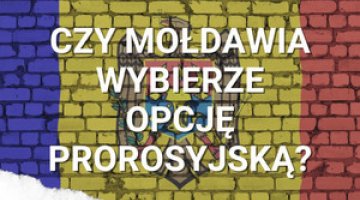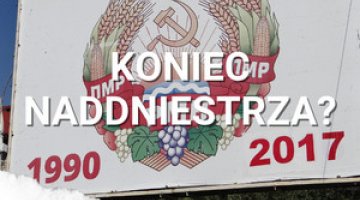Tensions between Moldova and Transnistria pose a threat to the Vilnius summit
In the last month tensions between Moldova and Transnistria have risen sharply. This has been caused by a decree on the state border issued on 10 June by the separatist leader Yevgeny Shevchuk. This document stated that the quasi-state, besides the territories which have been controlled by the separatist authorities since 1992, would also extend to the town of Varnita adjacent to the town of Bender (in Romanian - Tighina) and to several villages that are currently under the jurisdiction of Chisinau. In the decree which followed, Shevchuk compelled the institutions responsible for security of Transnistria’s borders to develop effective methods of border protection within three months.
In response to this, on 17 June Moldova's President Nicolae Timofti accused the “separatists and certain high-ranking officials from third states” of an attempt to destabilise Moldova. He was backed by Moldovan intellectuals who openly pointed to Russia as the state which was seeking to disrupt the process of Moldova's integration with the EU. On 21 June the Moldovan parliament adopted a declaration which condemned actions taken by Tiraspol. In response on the same day the Transnistrian guards denied four Moldovan policemen who permanently work in the local police station entry to Bender. At the same time Shevchuk announced the development of the garrison in Bender situated nearest the “border”.
Commentary
- In the coming months it may be expected that Tiraspol will make attempts to move the “border” in order to gain exclusive control of Varnita and the remaining towns which it makes claims to. The fact that citizen registration points are being put in place along the administrative line between Moldova and Transnistria also has the potential to trigger further incidents. Since March 2013 Chisinau has been announcing that they would be put in place in the near future. This is a measure required in order to introduce a visa-free regime with the EU. Tiraspol claims that this will make it possible to impose fines on Transnistria inhabitants who do not hold Moldovan passports because they will be treated as foreigners who live on the Moldovan territory without registration of residence. Chisinau has denied this and explains that no Transnistria inhabitants, regardless of which passport they hold, will be compelled to register at checkpoints.
- The adoption of the decree on the state border should be seen in the context of measures undertaken by Russia. Russia is the main protector of Transnistria and is actively involved in reversing Moldova's orientation towards its integration with the EU, for example by blocking the signing of the gas contract, threatening that integration will hit trade with Russia and hampering the 5+2 peace negotiations. Until recently Moscow probably expected that the fact that the Moldovan government collapsed on 5 March followed by a possible snap election would block the initialling of the Association Agreement with the EU scheduled to take place at the Eastern Partnership summit in Vilnius. However, as the government was reconstructed, Russia is trying to reach the same objective by escalating the tension between Chisinau and Tiraspol. It cannot be ruled out that before the Vilnius summit there will be serious incidents at the administrative line between Moldova and Transnistria.





